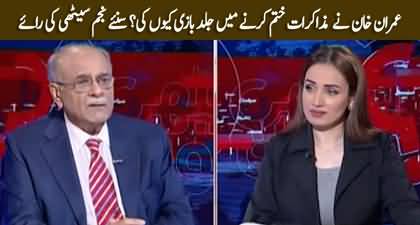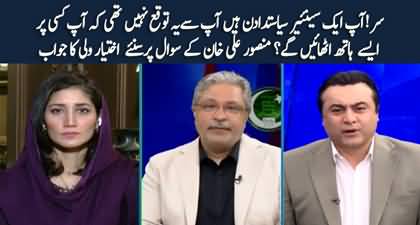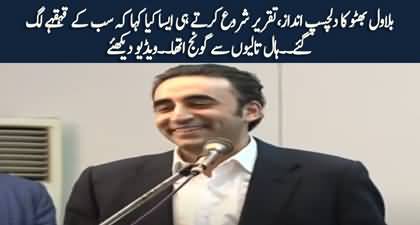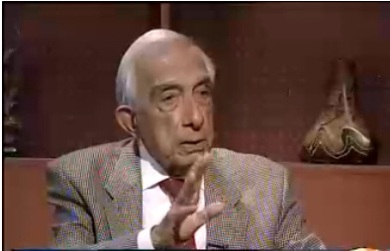
In 1965, a young man, not more than 18 years old, appeared before me (I was commissioner Quetta) as a candidate for the grant of a government scholarship. Little did I know that the young man was Iftikhar Muhammad Chaudhry, the future chief justice of Pakistan. He reminded me of this episode at two in the morning in his drawing room after his release from custody. “You gave me the scholarship. It made my career”, Chief Justice Iftikhar told me.
In Pakistan, as in all federations, the Supreme Court plays a crucial role. It is under the constitution, but it alone has the power to interpret what the constitution is. It is the sole and unique tribunal of the nation. The peace, prosperity, and very existence of the federation rest continually in the hands of the Supreme Court judges. Without them, the constitution would be a dead letter.
It is to them that the executive appeals to resist the encroachment of parliament; parliament appeals to defend itself against the assaults of the executive; the federal government to make the provinces obey it; the provinces to rebuff the exaggerated pretensions of the federal government, public interest against private interest etc. Their power is immense. But they are powerful only so long as the people and the government consent to obey the laws.
“The president may slip”, Tocqueville wrote in 1837, “without the state suffering, for his duties are limited. Congress may slip without the Union perishing, for above the Congress there is the electoral body which can change its spirit by changing its members. But if ever the Supreme Court came to be composed of corrupt, spineless rash persons, the confederation would be threatened by anarchy or civil war”.
In every period of political turmoil, men must, therefore, have confidence that the superior judiciary will be fiercely independent and resist all attempts to subvert the constitution. The slide began with Chief Justice Munir. The judgement of the federal court in Tamizuddin Khan’s case paved the way for future justification by the judiciary of patently arbitrary, malicious, and capricious acts of the executive on technical grounds or self-serving theories.
Years later, the Supreme Court, led once again by Chief Justice Munir, upheld the first martial law imposed by Ayub Khan in October 1958. In the leading judgement, Chief Justice Munir held that a victorious revolution or a successful coup d’état is an internationally recognised legal method of changing a constitution. His judgement in the Dosso case, like that in Tamizuddin Khan’s case, was retrogressive and set the clock back in the history of constitutional development in Pakistan.
What would have happened had Chief Justice Munir’s decisions been different? I have no doubt that the history of Pakistan would have been different. The democratic forces would have been considerably strengthened. Democracy would have taken roots in this country. Looking back, keeping the courts open for business, not as a matter of right but as a privilege, under strict limitations imposed by military rulers, and tailoring judgements for expedience, or simple survival, has done the country or the superior judiciary no good. On the contrary, it has undermined the confidence of the people in the independence of the courts.
As good luck would have it, in the darkest hour in the history of our country, Chief Justice Iftikhar Muhammad Chaudhry appeared on the scene like a deus ex machina. He broke with past tradition and changed the course of history. The nexus between the generals, the corrupt politicians and the superior judiciary has snapped. An era of deference by the Supreme Court to the executive has given way to judicial independence. After years of subservience to the executive, the Supreme Court is now back on its feet.
Iftikhar Muhammad Chaudhry’s appointment as chief justice of the Supreme Court was one of the happy developments that changed the course of history. Had fate not intervened, he would have retired, like any other chief justice, leaving behind an indifferent judicial record. As history shows, everyone must, from time to time, make a sacrifice on the altar of stupidity to please the deity. General Musharraf thought himself poised on the cusp of power, but was about to start sliding down a slippery slope whose end is bound to be disastrous.
Today the political landscape of Pakistan is dotted with Potemkin villages. All the pillars of the state, with the exception of the Supreme Court, are dysfunctional. Pakistan sits between hope and fear. Hope because ‘so long as there is a judiciary marked by rugged independence, the country and the citizen's civil liberties are safe even in the absence of cast iron guarantees in the constitution’. Fear that despite a strong and independent judiciary, the present corrupt order will perpetuate itself.
Chief Justice Iftikhar Muhammad Chaudhry faced an uphill task. When he assumed office as chief justice of the Supreme Court, the court lay prostrate. He found a skeleton. He clothed it with flesh and blood. He hit the constitution much as the Lord hit the chaos at a time when everything needed creating. An overwhelming responsibility rested on his shoulders. The survival of the federation as a democratic, progressive state depended on his court.
The extraordinary judgements of Chief Justice Iftikhar Chaudhry have laid the foundation of our constitutional edifice. For generations to come, that structure will be associated with Chief Justice Chaudhry and will remain the base upon which the Pakistan polity will function. The magisterial character of his judgements will never be equalled, much less surpassed in judicial history.
Above all, he will be remembered in history as the poor people’s chief justice who heard their voice, gave them hope and redressed their grievances. He exercised all the power that the constitution and laws conferred upon him, in the interest of the people of Pakistan but that power was resisted by a corrupt president and a rubber-stamp parliament.
The Iftikhar Chaudhry court reminds me of the Marshall court in the US. Marshall made the Supreme Court ‘a driving force’ for change. Like the Marshall court, the Iftikhar Chaudhry court has put itself in the vanguard of change. Marshall employed the law as a means to attain the political and economic ends that the people favoured. The judge was to use his power to mould the law in accordance with the needs of the American people. Marshall moulded his decisions to accord with the “felt necessities of the time”. For Marshall, as for Iftikhar Chaudhry, the constitution, like the law, was a tool to serve the needs of the nation.
The judicial revolution triggered by Chief Justice Iftikhar Chaudhry is irreversible. Let there be no doubt about it. Any attempt to undo it will be resisted. The people have planted an independent judiciary in the path of our turbulent democracy. No longer will the executive be a law unto itself. Today there are many willing to spill their blood to defend this hard-earned independent judiciary. Try to destroy the independence of judiciary, and the moment is not far off when this beautiful country will be plunged into a civil war.
The Supreme Court should be the barrier that protects the citizens from the winds of evil and tyranny. If we allow it to be stymied or sabotaged by corrupt rulers or permit it to be desecrated or demeaned and it crumbles, who will be able to stand in the winds that follow?
And what of Musharraf? ‘A short while ago, we saw him at the top of Fortunes’ wheel, his word a law to all and now surely he is at the bottom of the wheel. From the last step of the throne to the first of the scaffold there is a short distance”? Musharraf is gone, derided by the people and thrown into the dust bin of history. He subverted the constitution, imposed martial law, sacked the chief justice and emasculated the judiciary. He must be called to account and punished.
Source
Top Rated Posts ....
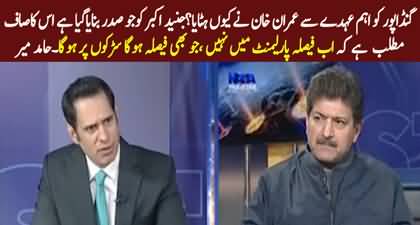 Hamid Mir tells real reason behind Ali Amin Gandapur's removal from KP presidentship
Hamid Mir tells real reason behind Ali Amin Gandapur's removal from KP presidentship
 This is how Muslims live in China (Uyghur) - A vlog by British tourists
This is how Muslims live in China (Uyghur) - A vlog by British tourists
 Yahya Sinwar's unseen footage from Gaza released
Yahya Sinwar's unseen footage from Gaza released
 Clash over shaving in Dijkot, barber killed father and his daughter
Clash over shaving in Dijkot, barber killed father and his daughter
 It's official now: Actors Kubra Khan, Gohar Rasheed confirm their marriage plans
It's official now: Actors Kubra Khan, Gohar Rasheed confirm their marriage plans
 Constitutional amendment to allow Donald Trump third term introduced in the House
Constitutional amendment to allow Donald Trump third term introduced in the House
Follow Us on Social Media
Advertisement
Popular Posts
Intense physical fight between Naeem Haider Panjotha & PMLN's Ikhtiar Wali on Live TV
Views 2778 | January 23, 2025Hamid Mir tells real reason behind Ali Amin Gandapur's removal from KP presidentship
Views 1838 | January 26, 2025Why Imran Khan ended talks in a hurry? Najam Sethi's analysis
Views 1405 | January 24, 2025People are leaving Islam in Iran, around 50% Iranians are atheists now
Views 1252 | January 24, 2025Bilawal Bhutto Nay Taqreer Ke Dauran Asa Kya Kaha Ke Hal Mein Qehqahay Lag Gaye?
Views 977 | January 23, 2025This is how Muslims live in China (Uyghur) - A vlog by British tourists
Views 955 | January 26, 2025TikToker Zulqarnain Sikandar arrested in Gujranwala
Views 941 | January 25, 2025What actually happened before fight b/w Ikhtiar Wali & Naeem Panjotha? Anchor Dr. Fiza tells details
Views 940 | January 23, 2025Yahya Sinwar's unseen footage from Gaza released
Views 922 | January 26, 2025Comments...






